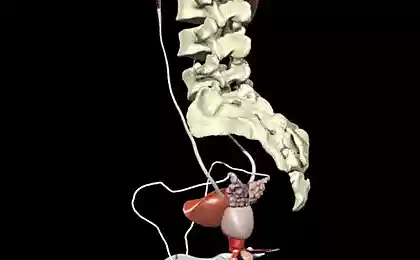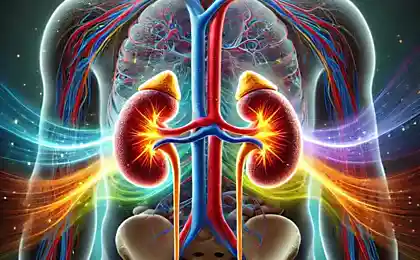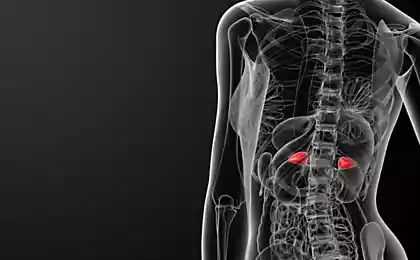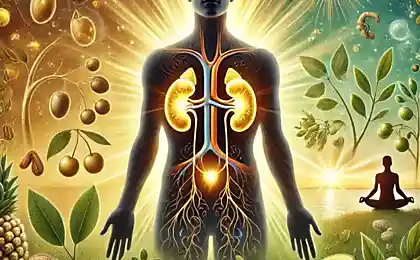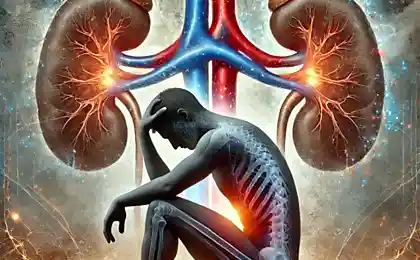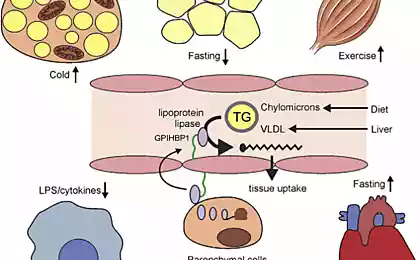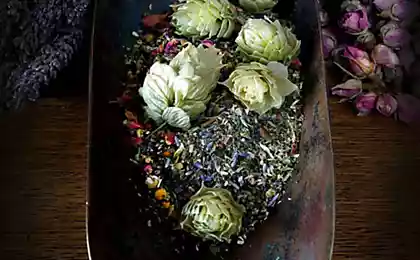309
How to support the adrenal glands without medication: Health ecology
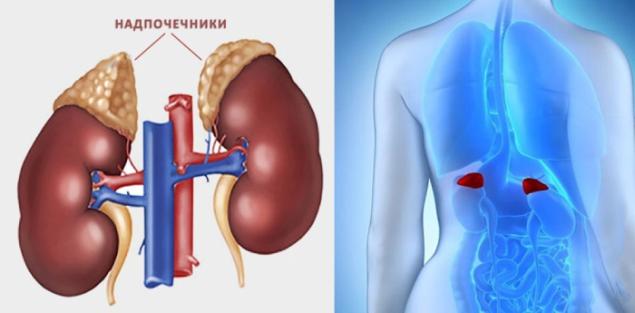
Imagine: you are standing on the edge of a cliff, the heart is pounding, the wind is rattling your hair. This is not a scene from the movie, but the moment when your adrenal glands take control, throwing out adrenaline to prepare you for action. These tiny glands hidden above the kidneys are the real heroes of our body, working tirelessly to make us cope with the challenges of life. But what happens when stress becomes not an episode, but a background of existence? The adrenal glands are depleted and we feel squeezed out like a lemon on a hot day. Fortunately, there are ways to regain their strength without a single pill - through the ecology of health, where body care becomes an art.
Adrenal glands: Little Titans of Stress
The adrenal glands are paired endocrine glands that produce hormones like cortisol and adrenaline, helping us adapt to stress. Cortisol regulates metabolism, suppresses inflammation and maintains energy balance, and adrenaline triggers the fight-or-flight response. But in a world where stress is not just a tiger in the bushes, but endless notifications, deadlines and traffic jams, these glands work to wear out. Research suggests that chronic stress can lead to so-called adrenal fatigue, a condition where the body loses its ability to respond effectively to stress (Wikipedia).
The story of Anna, a 34-year-old marketer from Moscow, illustrates this vividly. “I woke up tired, even after 8 hours of sleep,” she said. Coffee was my salvation, but by evening I was on edge. Anna didn't know her adrenal glands were signalling for help. Her case is not uncommon. But instead of medication, she found a way out of simple but powerful lifestyle changes.
Health Ecology: Practices for the adrenal glands
Stress is everything that puts the body out of balance: from emotional overload to malnutrition. Ecology of health suggests rebalancing through conscious habits. Here's how to do it.
1. Taming Stress: Sparks of Calmness
Stress is the main enemy of the adrenal glands. But it can be tamed. Start small: 10 minutes of meditation in the morning reduces cortisol levels, Harvard University research suggests. Or try a 4-7-8 breathing technique: inhale for 4 seconds, delay for 7, exhale for 8. It's like rebooting the nervous system.
- Walks in the park: Nature reduces stress 20% faster than the urban environment.
- Yoga: The baby position relaxes the body and mind in 5 minutes.
- Music: Classical or natural sounds normalize the pulse.
2. Food: Fuel for the glands
The adrenal glands love stability. Forget about the sugar roller coaster - sharp jumps in glucose exhaust them. Instead, add protein (chicken, fish), healthy fats (avocado, olive oil) and vitamins.
- Vitamin C: Eat kiwi or pepper – the adrenal glands use it to synthesize hormones.
- Magnesium: A handful of almonds in the evening will calm the nerves.
- Omega-3: Salmon or flaxseed oil will relieve inflammation.

3. Movement: Balance, not overload
Sport is an ally, not a tyrant. Intense exercise can increase cortisol, so choose moderation: 30 minutes of walking or swimming daily improves blood circulation and relieves tension. Anna, by the way, replaced the gym with dances - and a month later she noticed a surge of strength.
4. Sleep: The Golden Recovery
Sleep deprivation is like a duty to the adrenal glands. Lie down until 23:00, avoid the blue light of the screens an hour before bedtime, and your glands will say thank you. Warm chamomile tea or 5 minutes of stretching before bed will enhance the effect.
Create a ritual: a book instead of a phone before bed reduces stress by 68%, according to British scientists.
5. Herbs: A gift from nature
Adaptogens are herbs that help the body cope with stress. Ashwagandha reduces anxiety, rhodiola gives energy without caffeine. Licorice tea supports cortisol, but drink it moderately - the pressure can jump.

Conclusion: Living in harmony
The adrenal glands are not just glands, but a reflection of how we live. Health ecology is not a diet or regimen, but a philosophy of self-care. Start small: cups of herbal tea, walks under the stars, deep breaths in silence. Like Anna, who now dances in the morning instead of a third cup of coffee, you can get your energy back. Listen to your body, it knows the way.
Glossary
- Adrenal glands: Endocrine glands above the kidneys that produce stress hormones.
- Cortisol: A hormone that regulates stress and energy.
- Adrenaline: A hormone that triggers a reaction to danger.
- Adaptogens: Herbs that increase resistance to stress.
- Adrenal fatigue: Exhaustion of the adrenal glands from chronic stress.
- Health ecology: Approach well-being through balance of body and environment.
How to bring clean water to someone who secretly harms
Frederick Perls on projection: Ecology of life and psychology
